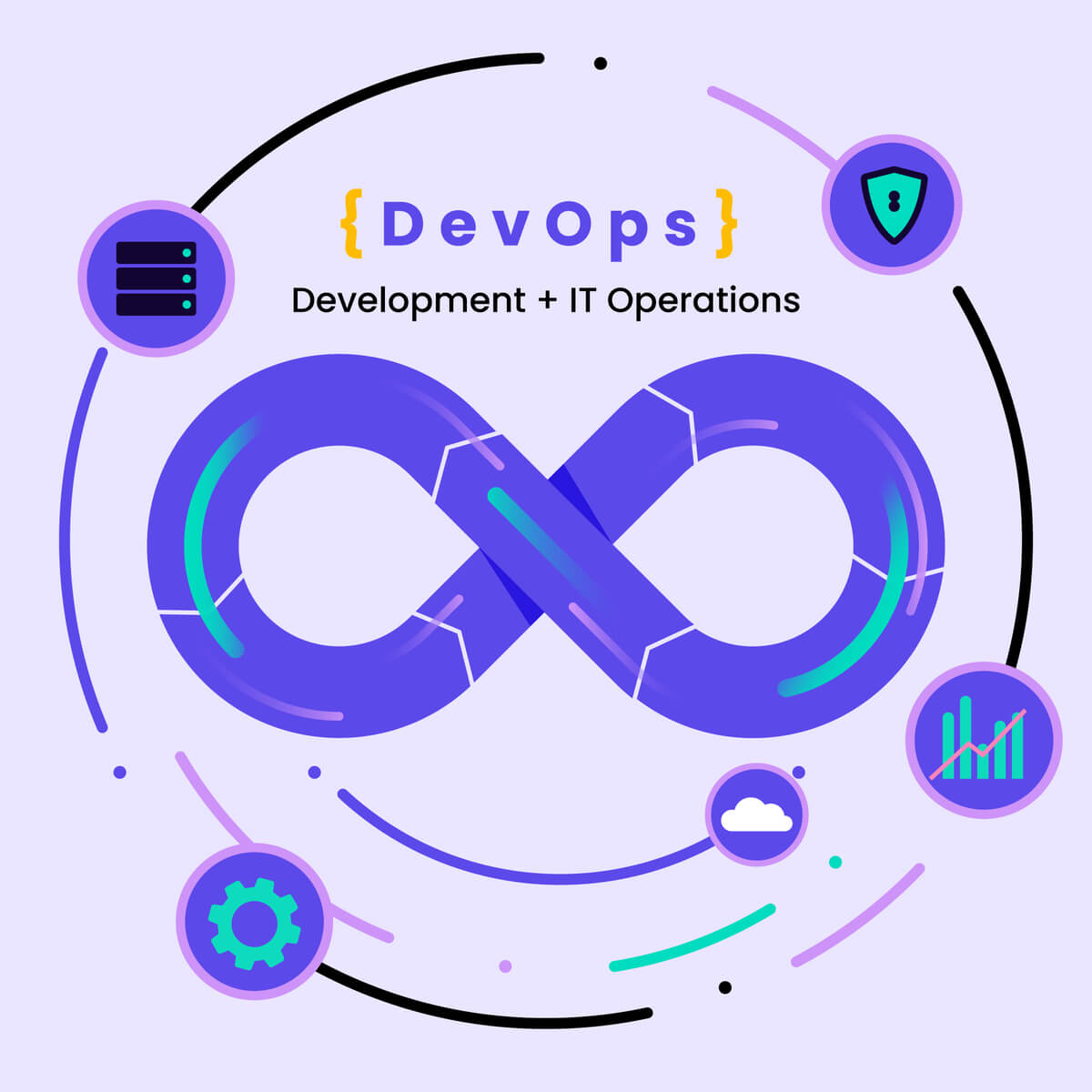Devops
Software development and IT operations are combined in the DevOps set of practices. It seeks to
speed up the systems development life cycle and offer continuous software delivery of the highest
caliber. Agile software development and DevOps are complementary; numerous parts of the former
were inspired by the latter.


What is DevOps' process?
To improve the pace and caliber of software deployment, a DevOps team consists of developers and
IT operations personnel that collaborate throughout the product life cycle. Teams and the
organizations they work for will be significantly impacted by this new method of working, or cultural
shift.
Development and operations teams are no longer “siloed” under a DevOps approach. These two
teams can occasionally combine to form a single team of engineers who work across the whole
application lifecycle, from development and test to deployment and operations, and who possess a
variety of multidisciplinary abilities.
Tools are used by DevOps teams to automate and speed up procedures, which increases reliability.
With the use of a DevOps toolchain, teams can address crucial DevOps basics like continuous
integration, continuous delivery, automation.
The advantages of DevOps speed

With the help of DevOps methods, you may move at the speed necessary to innovate more quickly,
better adjust to shifting markets, and increase your effectiveness in generating commercial results.
Swift Delivery:
By speeding up releases, you can develop your product more quickly and gain a
competitive edge.
Reliability:
Continuous integration and continuous delivery are two DevOps techniques that can help
you deploy application updates and infrastructure changes with reliability and speed while still giving
end users the best possible experience.
Increased Cooperation:
A DevOps paradigm involves close collaboration, responsibility sharing, and
workflow integration between development and operations teams.

Grursus mal suada faci lisis Lorem ipsum dolarorit more and dumm ametion consectetur elit. Vesti at bulum nec odio aea the of dumm

Robert Bruce
Apps Developer

Grursus mal suada faci lisis Lorem ipsum dolarorit more and dumm ametion consectetur elit. Vesti at bulum nec odio aea the of dumm

Cassie Ventura
Product Manager

Grursus mal suada faci lisis Lorem ipsum dolarorit more and dumm ametion consectetur elit. Vesti at bulum nec odio aea the of dumm

Kate Kingston
Web Designer

Grursus mal suada faci lisis Lorem ipsum dolarorit more and dumm ametion consectetur elit. Vesti at bulum nec odio aea the of dumm

Robert Bruce
Apps Developer

